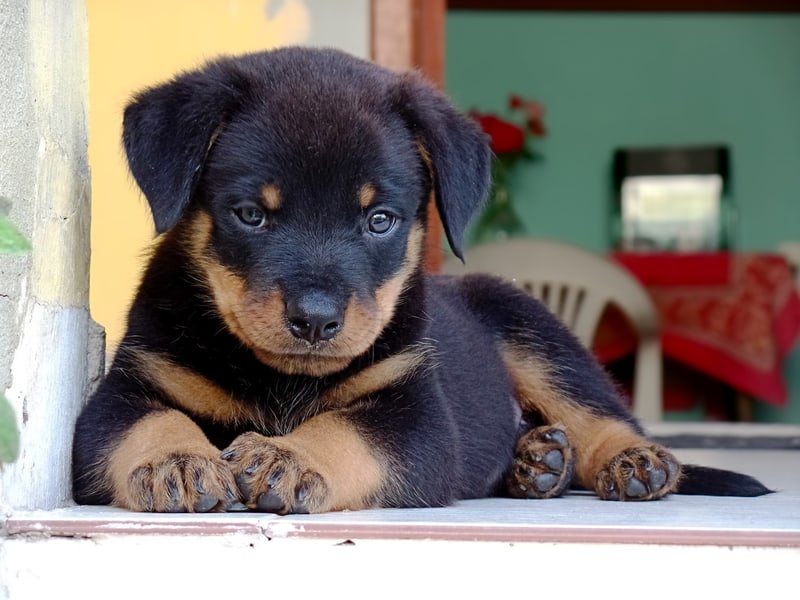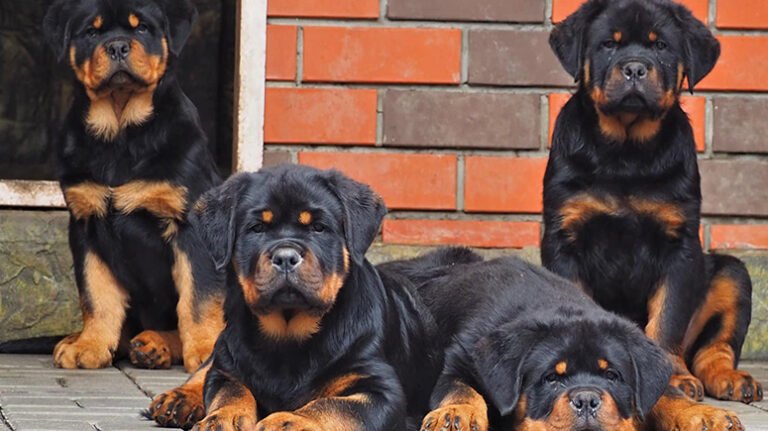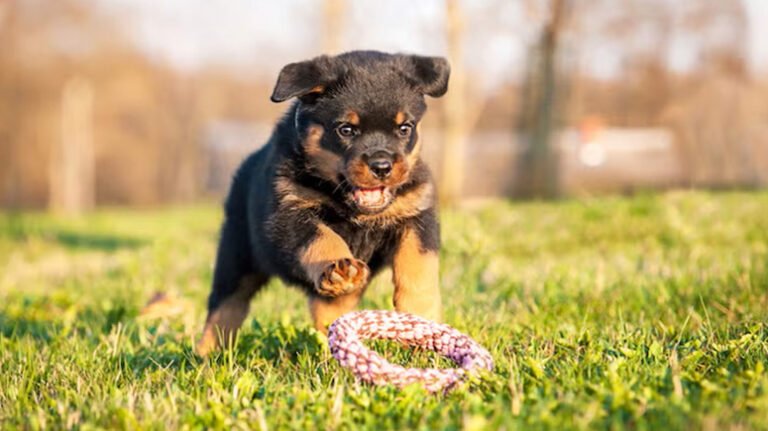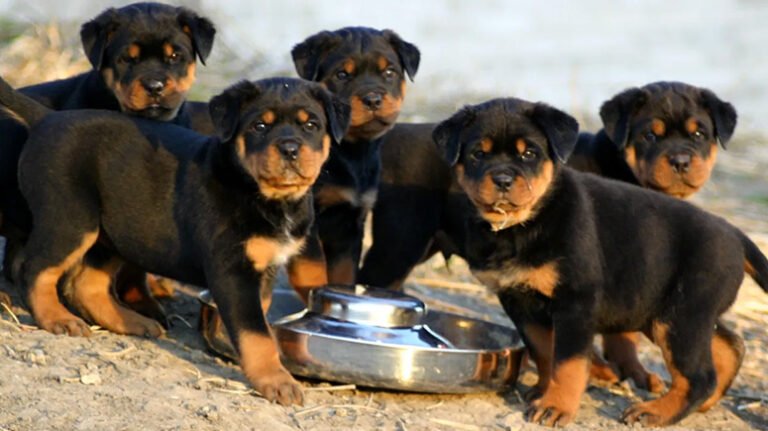The First Week with Your Rottweiler Puppy

Introduction
Bringing home a Rottweiler puppy is an exciting and transformative experience. Known for their loyalty, intelligence, and protective nature, Rottweilers require careful attention and guidance, especially during their formative weeks. The first week is crucial for establishing routines, fostering a bond, and ensuring a smooth transition from the puppy’s previous environment to your home. This article will guide you through essential steps and considerations for making your first week with your Rottweiler puppy a rewarding experience.
Preparing for the Arrival
Before your puppy’s arrival, it’s essential to prepare your home and make arrangements that will facilitate a smooth transition. This preparation involves gathering supplies, creating a safe space, and learning about your new companion’s needs.
Essential Supplies
Ensure that you have the necessary supplies before your puppy arrives:
- Food and Water Bowls: Invest in sturdy, stainless steel bowls that can withstand a Rottweiler’s strength.
- Puppy Food: Opt for high-quality puppy food that meets the nutritional requirements for a large breed, and consult your veterinarian for recommendations.
- Collar and Leash: A durable collar (with ID tags) and a strong leash for walks are essential.
- Dog Bed: Choose a comfortable, appropriately-sized bed where your puppy can rest and sleep.
- Puppy Crate: A crate can help with house training and give your puppy a secure environment.
- Chew Toys: Rottweilers are known for their powerful jaws, so provide heavy-duty toys that can withstand their chewing.
- Puppy Training Pads: These can be useful for house training in the initial days.
Creating a Safe Space
Decide on an area in your home where your puppy can feel safe and comfortable. It should be quiet and free from hazards. This space should contain your puppy’s bed, toys, and food and water bowls. Limit the area to prevent overwhelming your puppy, especially during the first few days.
Learning about Rottweiler Behavior
Understanding Rottweiler behavior is vital for successful training and bonding. Recognize that they are intelligent and loyal dogs, known for their protective instincts. Early socialization and consistent training will shape their behavior and temperament.
The First Day: Settling In
Your puppy’s first day in a new environment can be overwhelming. Here’s how to make it easier for both you and your puppy:
Welcoming Your Puppy Home
When you first bring your Rottweiler puppy home, keep the atmosphere calm. Avoid overwhelming them with too many people or loud noises. Allow your puppy to explore their new space at their own pace – this can help them feel secure.
First Interaction
Gentle and positive interactions are key during the initial hours. Sit on the floor, and let your puppy approach you. Offer treats or toys to encourage interaction but avoid forcing contact. Establishing trust is vital.
Feeding Your Puppy
Stick to the feeding schedule recommended by the breeder or rescue organization. Introduce them to their feeding area, and use calm and positive reinforcement when they eat. It’s a good opportunity to establish boundaries by not allowing sudden movements or disturbances during mealtime.
Establishing Routines
Rottweiler puppies thrive in structured environments. Establishing a daily routine helps them feel secure and aids in behavioral training.
Feeding Schedule
Puppies typically require three to four meals a day. Establish consistent feeding times to help your puppy understand when to expect food. Monitor the amount fed, ensuring that it adheres to the guidelines on your puppy’s food packaging, as overfeeding can lead to weight issues.
Bathroom Breaks
House training is a crucial part of your puppy’s first week. Take your Rottweiler outside for potty breaks:
- After eating or drinking
- After playtime
- First thing in the morning and before bedtime
Praise and reward your puppy for going outside. If they have accidents indoors, clean them up immediately without scolding – it’s essential to maintain a positive atmosphere.
Exercise and Play
Rottweilers are energetic and playful, requiring regular exercise even at a young age. Age-appropriate play sessions and short walks are essential for physical health and mental stimulation.
- Playing Fetch: A great way to engage your puppy in physical activity.
- Short Walks: Start with a 10-15 minute walk around your yard or neighborhood.
However, avoid excessive exercise that may lead to joint strain, particularly since Rottweilers are prone to hip and joint issues.
Socialization: Learning to Interact
Socializing your Rottweiler during their early weeks is critical. Proper socialization will help your puppy become a well-adjusted adult dog.
Introducing Family and Friends
Invite close friends and family members to meet your new puppy, but ensure these interactions are calm and controlled. Allow your puppy to engage at their own pace, ensuring they feel safe and secure.
Exposure to Different Environments
Gradually expose your puppy to various surroundings. You could take short drives in the car, visit parks, or walk around your neighborhood. Each new experience will help them gain confidence.
Meeting Other Dogs
Consider introducing your Rottweiler puppy to other vaccinated and friendly dogs. However, ensure that these interactions are manageable and not too overwhelming. This is critical for developing their social skills.
Training Basics: Setting the Foundation
Early training is key to having a well-behaved dog. Use positive reinforcement techniques to encourage desirable behaviors.
Basic Commands
Start teaching fundamental commands like “sit,” “stay,” and “come.” Make training sessions short and fun, using treats or praise as rewards.
Addressing Behavioral Issues
If your Rottweiler exhibits undesirable behaviors, such as chewing or barking excessively, address these issues early. Provide appropriate chew toys and redirect their attention when necessary.
Crate Training
Puppy crate training is an effective method for house training and creating a safe space for your puppy. Ensure the crate is comfortable and never use it as a form of punishment. Gradually introduce your puppy to the crate, encouraging them to see it as a cozy den.
Health and Well-being
Your Rottweiler puppy’s health should be a top priority. During the first week, focus on establishing routines for their care and health maintenance.
Vet Check and Vaccinations
Schedule a visit to the veterinarian within the first week. The vet will conduct a health assessment, provide necessary vaccinations, and discuss a schedule for future vaccinations. Regular check-ups are vital for ensuring your puppy’s health.
Feeding and Nutrition
High-quality puppy food is crucial for your Rottweiler’s growth and development. Select a food designed for large breed puppies, which is rich in nutrients and protein. Follow your vet’s recommendations for portion sizes and feeding frequency.
Grooming Essentials
Rottweilers have a distinctive coat that requires some grooming to maintain its health.
Brushing Your Puppy
Brush your puppy’s coat a few times a week to remove loose hair and dander. This helps to keep their coat healthy while building trust during the grooming process.
Nail Trimming and Ear Care
Keep an eye on your puppy’s nails and trim them regularly to avoid discomfort. Inspect their ears for cleanliness and signs of infection. Regular ear checks will promote their overall health.
Dental Care
Start a dental care routine early. Introduce your puppy to a dog-safe toothpaste and brush their teeth regularly to prevent dental issues in the future.
Bonding Activities
During your Rottweiler puppy’s first week, it’s important to nurture the bond between you two. Engaging in activities together will help in forming a strong connection.
Quality Time
Spending quality time together, whether through play, training, or simply relaxing in each other’s company, will strengthen your relationship. Puppies crave interaction, and your companionship will help them feel secure.
Training Games
Incorporate training into playtime. Games like hide and seek or fetch can be combined with training commands to make learning fun.
Scent Games
Engage your puppy’s senses through scent games. Hide treats around the house and encourage your puppy to find them. This will stimulate their mind and promote independent exploration.
Conclusion
Bringing a Rottweiler puppy into your life is a journey filled with joy, learning, and responsibility. The first week lays the foundation for your puppy’s growth and development, setting the stage for a lifetime of companionship. By preparing adequately, establishing routines, and building a strong bond through socialization and training, you will help your new friend adapt and thrive in their new home. Remember that patience, consistency, and love are the keys to nurturing a well-adjusted and happy Rottweiler. Enjoy every moment of this rewarding experience, and cherish the unique bond that will grow between you and your Rottweiler puppy.



